At Dearborn Academy, we believe students with emotional and learning challenges deserve the opportunity to set and achieve high goals for themselves. As the world raises the bar for our young people, we are likewise committed to supporting them in learning new skills and persevering through new and unfamiliar challenges. All students deserve the opportunity to be college-bound and/or pursue their desired career path. Our programming seeks to give students these opportunities.
The curriculum for transition planning and learning is infused into all aspects of a student’s school day. Teachers, learning specialists, clinicians and guidance counselors work together to ensure that transitional learning remains at the forefront. Through thoughtful relationships, staff at Dearborn Academy learn and understand our students holistically. Staff members develop a learning pathway that builds off of each student’s identified strengths and goals. We seek to give students agency and ownership of the college and transitional planning process by learning about their specific learning and social-emotional needs and empowering them to be advocates for their future.
National Honor Society
Dearborn Academy is proud to offer our students access to becoming a member of the National Honor Society. Click here to learn more about how to become a member!
Dearborn Guidance Team
Jen Harris, Guidance Counselor
Paige White, Guidance Counselor
9th Grade
Freshman year is a time of transition. Students are joining a new school community, learning the increased expectations and responsibilities of being a high school student, and making new connections and friendships.
Tips for Caregivers
Attend Back to School Night in August to meet the high school teaching team, clinicians, and guidance counselors before the school year begins.
Attend Open House in October where caregivers walk through their student’s schedule, reconnect with their teachers, and see work that students have completed so far that year. It is a great opportunity to see what a day at Dearborn Academy looks like!
Help your child establish a consistent study routine. In high school, student’s will have homework throughout the week and it is helpful for students to have a consistent method of tracking their homework and completing it.
Encourage your student to engage with clubs and activities at school, this is a great way to meet new friends and make new connections with the high school.
10th Grade
Sophomore year is a time to focus on personal and academic growth. Students are encouraged to expand their extracurricular activities which could be centered around clubs at school, athletics, art, employment, or volunteering.
Tips for Caregivers
Attend Back to School Night in August to reconnect with the teaching team, clinicians, and guidance counselors.
Attend Open House in October to walk through your student’s schedule, meet their teachers, and learn about the classes they are taking and see completed work from the year so far.
Help your student to continue to build their study habits and organizational skills with a method to track their assignments, especially homework.
Continue to encourage your student to engage with extracurricular activities such as clubs at school, athletics, art, and volunteering opportunities.
Encourage your student to begin to explore college or trade possibilities for the future by talking about college or employment and making informal visits to local colleges and universities.
Help your student choose meaningful activities for the summer including: summer program at Dearborn, volunteer opportunities, employment, trade camps, or community opportunities.
Students who are interested in taking the SAT should consider taking the PSAT in the spring which is a form of a practice SAT test for sophomores. Students can begin SAT practice questions and prepare for the exam if appropriate and applicable for the student. (Ask your student’s guidance counselor if you are unsure if this is appropriate for them!)
11th Grade
Junior year is a very important time in a high school student’s life. Students are continuing to discover who they are, their interests, values and beliefs, strengths and weaknesses, and how these all intertwine to develop a long term plan for their future.
Tips for Caregivers
Junior year students begin meeting with their guidance counselor for individual sessions every other week. Encourage your student to bring questions, concerns, and curiosities to their sessions.
Attend Back to School Night in August to meet your student’s teachers, clinical staff, and guidance counselors who will all continue to work closely with you and your student.
Attend Open House in October to connect with your student’s teachers, clinician, and guidance counselor and see completed work from this school year.
Juniors should continue to take practice SAT questions/exams if they are planning on taking the SAT in the spring. Students are encouraged to take the PSATs in the fall to help prepare for the SATs in the spring of junior year and fall of senior year.
Conversations students have with caregivers are so important to a student’s understanding of themselves, their values, strengths, and areas of growth. This also helps in the student’s planning for the future as they better begin to understand themselves and their skills and interests.
Families can help students research colleges they are interested in and visit colleges when possible. (Guidance counselors will also be doing this work with students and taking students on college tours and fairs!)
Caregivers of juniors are encouraged to reach out to their district to see if their district utilizes programs such as Naviance, Slate, or other transition related programs. If the district uses a program, your student should receive login information that they can use to explore with their guidance counselor.
Attend Junior Night in the spring to learn more about the college application process and how to manage the stress that comes with it.
Juniors are encouraged to spend their summer in a meaningful way by enrolling in Dearborn Summer Program, finding a job, connecting with their community programs, volunteering, or maintaining their extracurricular activities.
12th Grade
Senior year is a pivotal time in a student’s life. Students are making their post-secondary plans, applying to colleges, finding trade programs, or finding employment. It is an exciting and often stressful time.
Tips for Caregivers
Senior year students begin meeting with their guidance counselor for individual sessions on a weekly basis. Guidance counselors are here to support students and families throughout the transition process from high school to whatever might be coming next for each individual student.
Attend Back to School Night in August, it is a great opportunity to reconnect with teachers, clinicians, and guidance counselors before the school year begins.
Attend Open House in October, it is helpful to connect with teachers about the curriculum that will be different for seniors and how your student can increase their student skills to be ready for college or their plans for after high school.
Attend Senior Night in the fall of senior year where Dearborn leadership and guidance counselors will provide information about the college application process and how to manage stress and anxiety that may arise.
College visits are an important part of the college application process, students are encouraged to attend the college tours that Dearborn takes students on (regardless of if they are interested in that particular school!). And students are also encouraged to visit the specific schools they are applying to with their families.
Caregivers are encouraged to speak to your student’s guidance counselor about specific college programs that support students with learning disabilities. Many colleges offer supports but not all programs are equal.
Transition planning and the college application process are often a stressful time for students and their families. It is often helpful for families to establish a weekly check-in time to discuss progress towards certain objectives and maintain a checklist to help prioritize deadlines and goals.
Your student’s clinician and guidance counselor are a resource for transition planning, do not hesitate to reach out for support!
College Acceptances to Date
- Suffolk University
- Simmons University
- Massachusetts College of Art
- UMass Lowell
- Framingham State University
- Lesley University
- University of Rhode Island
- Merrimack College
- Montserrat College
- Maine Art & Design
- Bridgewater State University
- University of Hartford
- Emmanuel College
- Northern Maine Community College
- Coastal Carolina University
- Plymouth State University
- Wheaton College
- Landmark College
- North Bennet Street School
- Union College
- Brandeis University
Transition to a Career
At Dearborn Academy, we know that emotional and learning challenges need not be a barrier to accessing higher-level learning and post-graduate education. We help all students attain the skills necessary to transition into college and realize that what they may have thought was not a possibility is, in fact, within reach.
We also value the importance of exploring what the right option is for each student and know that not everyone finds a college path right for them – or at least not immediately following high school graduation. Depending on their interests and talents, students are helped to access training programs in the trades. Many build on experiences they have had in our extensive shop programs. Still others branch out in new areas and look for different apprenticeship opportunities.
We help students determine individual strengths and areas of interest, write resumes, generate cover letters and complete applications. Career planning also includes career education field trips, hearing from speakers from varied career fields, internships, classes and other school-to-work activities.
Caregiver Support
As we prepare our students for college or career life after high school, we also support their caregivers. We recognize how challenging their student’s educational journey has been and how difficult the transitional conversation can be. We work collaboratively to ensure that we are all aligned with the student’s vision and plans. We host transition planning events, bring in guest speakers, offer support groups, and increase clinical support for the caregivers of our high school students. For more information about how we support our caregivers, please visit our caregiver support page.

